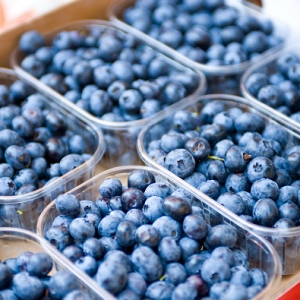Polish blueberries successful in the export markets
“The main export markets for Polish blueberries are the UK, Germany and the Netherlands. Interest in blueberries from Poland is quite big and our fruit has become a brand in itself,” said Irenaeus Komorowski, President of the Blueberry Growers Association, in an interview to www.sadyogrody.pl. “Their quality and freshness have resulted in Polish blueberries becoming desirable in other markets.”
Despite this, blueberry producers expect they may be facing problems next season in selling the fruit as a result of the Russian embargo.
“I experienced the effects of the embargo first-hand in July last year. I started the season with the export of goods to the Russian Federation, but after the ban, the recipients of subsequent contracts resigned. Naturally, the fruit was sold, but you are obviously not in a good situation when you are losing buyers. Ultimately, this also affects the price level,” explains Irenaeus Komorowski.
“In the initial and final stages of the harvest, prices tend to be satisfactory, and in a situation where sales come to a halt, the fruit can be kept in cold storage for approximately 3 weeks. In this respect, we are in a much better position than, for example, strawberry producers, who at this point are on tenterhooks, since the fruit must find a buyer right after the harvest and they exported mainly to the East, where the situation is marked by the instability of Russia and Ukraine,” adds Komorowski.
The 2014 season was good in terms of yield. “It is estimated that it could be 20-50% higher than a year earlier. At the beginning of the season the prices were satisfactory, but they were then kept to a minimum for quite a long time. To some extent, this was certainly due to the embargo,” says Irenaeus Komorowski.
It is difficult to predict what the upcoming blueberry season will bring. “So far, we have suffered no frosts, and it is surprising how, after such a fruitful year, we observe quite a strong flowering, from which one could infer that yields will again be high; however, the cold days and nights with temperatures close to zero are affecting the plants’ vegetative development, and this could significantly reduce the yield,” adds the expert.
The way to prevent this is to remove some of the flowers. Growers deciding not to carry out this thinning may suffer problems with the flowering next season and the weakening of the bush,” advises the grower.
The majority of highbush blueberries grown in Poland are exported. According to estimates, exports account for 80-90% of the production.
05/26/2015
Fresh Plaza/sadyogrody.pl






